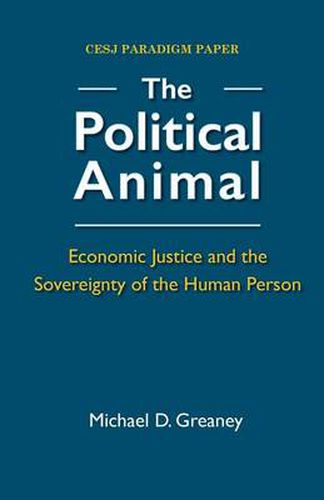Readings Newsletter
Become a Readings Member to make your shopping experience even easier.
Sign in or sign up for free!
You’re not far away from qualifying for FREE standard shipping within Australia
You’ve qualified for FREE standard shipping within Australia
The cart is loading…






This title is printed to order. This book may have been self-published. If so, we cannot guarantee the quality of the content. In the main most books will have gone through the editing process however some may not. We therefore suggest that you be aware of this before ordering this book. If in doubt check either the author or publisher’s details as we are unable to accept any returns unless they are faulty. Please contact us if you have any questions.
Often thought in the modern world to be completely unrelated, even antithetical to the restoration of a just society, the restoration of morality and widespread direct ownership of the means of production go hand-in-hand, as moral authorities through the ages have recognized. The problems facing modern society cannot be solved and the natural moral law restored except through the action of ordinary people organizing for the common good. Further, ordinary people will never have the power to organize effectively until and unless they have direct ownership of a meaningful stake of income-generating assets. As Daniel Webster observed in 1820, ‘Power naturally and necessarily follows property.’ The problem is how to empower ordinary people with the means of acquiring and possessing private property and thereby lay the groundwork for solving today’s problems. In a modern economy, that necessarily means democratic access to money and credit by reforming the money and credit system. - The Political Animal, p. 117. Michael D. Greaney, Director of Research of the Center for Economic and Social Justice, has written widely on money, credit, banking, and finance from a Just Third Way perspective. This is his fourth book published by Economic Justice Media.
$9.00 standard shipping within Australia
FREE standard shipping within Australia for orders over $100.00
Express & International shipping calculated at checkout
This title is printed to order. This book may have been self-published. If so, we cannot guarantee the quality of the content. In the main most books will have gone through the editing process however some may not. We therefore suggest that you be aware of this before ordering this book. If in doubt check either the author or publisher’s details as we are unable to accept any returns unless they are faulty. Please contact us if you have any questions.
Often thought in the modern world to be completely unrelated, even antithetical to the restoration of a just society, the restoration of morality and widespread direct ownership of the means of production go hand-in-hand, as moral authorities through the ages have recognized. The problems facing modern society cannot be solved and the natural moral law restored except through the action of ordinary people organizing for the common good. Further, ordinary people will never have the power to organize effectively until and unless they have direct ownership of a meaningful stake of income-generating assets. As Daniel Webster observed in 1820, ‘Power naturally and necessarily follows property.’ The problem is how to empower ordinary people with the means of acquiring and possessing private property and thereby lay the groundwork for solving today’s problems. In a modern economy, that necessarily means democratic access to money and credit by reforming the money and credit system. - The Political Animal, p. 117. Michael D. Greaney, Director of Research of the Center for Economic and Social Justice, has written widely on money, credit, banking, and finance from a Just Third Way perspective. This is his fourth book published by Economic Justice Media.